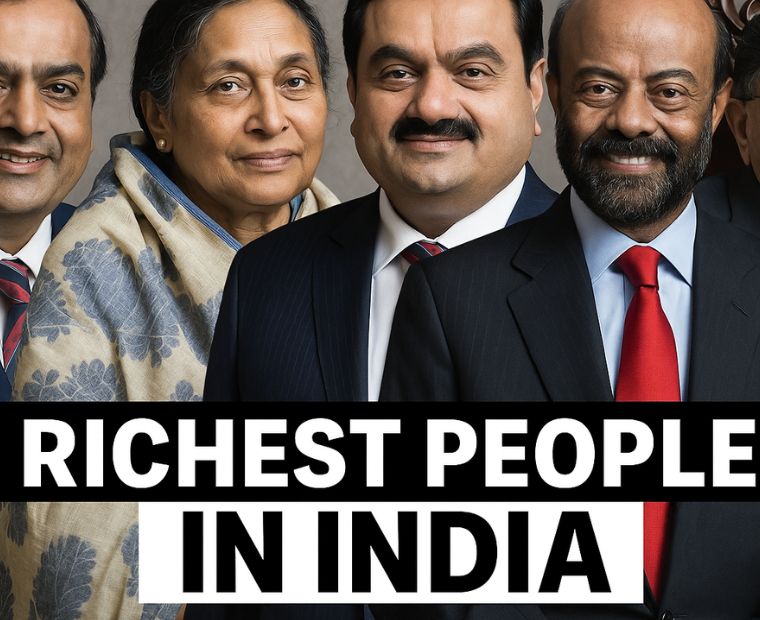
Table of Contents
Modified On:
Explore the financial powerhouses in cricket! We've ranked the richest cricket boards in the world, showcasing their revenue and influence.
Cricket is one of the most beloved sports in the world, with a massive following in countries like India, Australia, England, and Pakistan.
The sport's ever-growing popularity is largely due to cricket board associations that play an important role.
They are responsible for managing tournaments, fostering player development, and securing broadcasting deals.
Key players like the Board of Control for Cricket in India (BCCI), England and Wales Cricket Board (ECB), and Cricket Australia (CA), play a major role in the sport’s growth and are some of the richest cricket boards in the world.
List of Richest Cricket Boards in the World
1. Board of Control for Cricket in India (BCCI) Net Worth: ₹163 Cr
The BCCI has an estimated net worth of ₹16,313 crore as per its audited financial statements for FY 2023-24. With this massive net worth, BCCI is the richest cricket board in the world.
BCCI remains debt-free and posts a consistent surplus annually despite setting aside ₹7,300 crore in income tax provision and ₹3,000 crore in contingency reserves.
BCCI’s financial strength is largely driven by the runaway success of the Indian Premier League (IPL). The IPL is solely responsible for bringing in thousands of crores annually through media rights, sponsorship, and franchise deals.
Check out the list of the richest IPL teams and their net worth.
2. Cricket Australia (CA) Net Worth: ₹67.45 Cr
According to its FY 2023-24 audited financial report, the Cricket Australia (CA) board boasts an estimated net worth of ₹67.45 crore.
Cricket Australia is among the wealthiest cricket boards in the world, thanks to its commercial partnerships, broadcast deals, and domestic cricket leagues like the BBL and WBBL.
In FY 2023-24, the Australian cricket board generated revenue of AUD 456.66 million and reported a net surplus of AUD 10.62 million.
Cricket Australia’s financial stability is driven by the continued success of the national team’s performance and its domestic leagues.
3. England & Wales Cricket Board (ECB) Net Worth: ₹59.86 Cr
The England and Wales Cricket Board (ECB) manages the entire ecosystem of English and Welsh cricket, from grassroots to elite levels.
Its FY 2023-24 audited financial statements reported an estimated net worth of ₹59.86 crore. The ECB’s net worth includes retained earnings and reserves set aside to mitigate risks like tour cancellations or unexpected revenue loss.
Despite rising operational costs and weather-related match disruptions in 2024, the board remains profitable and strategically focused on long-term growth.
The ECB sees record attendance outside of Ashes years and continues to invest heavily in grassroots cricket, women's cricket, and infrastructure throughout the UK, despite the sport not being as commercially dominant as the IPL.
Find out the richest cricketers in the world.
4. Pakistan Cricket Board (PCB) Net Worth: ₹19.06 Cr
The Pakistan Cricket Board (PCB) is predicted to have a net value of around ₹19.06 Cr, according to projections derived from its audited financial accounts (FY 2020-21) and adjusted for anticipated growth.
Despite being far smaller than organisations such as the BCCI, PCB remains the most financially secure sports body in Pakistan.
PCB's net assets largely comprise long-term investments, cash reserves, receivables from sponsors and franchises (particularly the Pakistan Super League), and infrastructure investments in stadiums and academies.
The success and expansion of the Pakistan Super League (PSL), PCB's premier commercial product, are having an increasing impact on its financial status.
5. Cricket South Africa (CSA) Net Worth: ₹38.48 Cr
According to its 2023-24 integrated report, Cricket South Africa (CSA) has a net worth of ₹38.48 Cr.
While lagging behind cricket powerhouses such as the BCCI, the CSA has made tremendous financial strides recently, reversing losses and establishing solid liquidity and profitability.
Strategic investments in women's cricket, grassroots initiatives, and the commercial success of the SA20 league all help to strengthen CSA's financial position.
The recovery from previous years' financial stress demonstrates solid governance reform and a thriving cricket economy in South Africa.
6. Zimbabwe Cricket Net Worth: ₹17.1 Cr
According to estimates derived from 2020–2023 audited financial reports, Zimbabwe Cricket (ZC) is projected to have a net worth of about ₹17.1 crore in 2025.
This indicates the board's steady recovery and consolidation phase after years of restructuring, debt reduction, and investment in grassroots and women's cricket.
Zimbabwe Cricket's financial recovery has been characterised by the elimination of debt, the expansion of grassroots initiatives, and the judicious use of limited resources, even though they do not compare financially to wealthier boards.
7. Cricket West Indies (CWI) Net Worth: ₹39.49 Cr
Cricket West Indies (CWI) has made a remarkable comeback from its cumulative deficit of USD 2.5 million in 2022, as shown in its audited financial accounts for FY 2023-24, which indicate an estimated net worth of ₹39.49 crore.
Increased international fixtures, better governance, and the successful co-hosting of the ICC Men's T20 World Cup 2024 were the driving forces for this turnaround.
At USD 39 million, or 44% of its yearly earnings, CWI's position as a T20 World Cup co-host ensured its financial security in 2024.
The long-term expansion of CWI is anticipated to be sustained by strategic reforms, such as improved financial controls and a multi-year commercial partnership with Caribbean CAGE worth over USD 100 million.
8. Sri Lanka Cricket (SLC) Net Worth: ₹40.09 Cr
Sri Lanka Cricket (SLC) has an estimated net worth of ₹40.09 crore, according to its audited financial accounts for FY 2023.
Because it operates freely without government support, SLC is now Sri Lanka's most financially stable sports regulating body.
In addition to substantial receivables from sponsors, broadcasters, and the ICC, SLC's financial profile contains around LKR 10 billion in liquid assets, including bank savings and investments, as well as revaluation reserves from real estate and cricket infrastructure.
9. New Zealand Cricket (NZC) Net Worth: ₹17.95 Cr
New Zealand Cricket (NZC) has an estimated net value of NZD 30–35 million, or roughly $18–21 million USD, according to the yearly reports from 2021–2024.
Despite being small in comparison to bigger boards like the ECB or BCCI, NZC maintains sound financial standing with robust reserves and steady development.
Equality and sustainability are key to NZC's financial strategy; in particular, its historic Master Agreement guarantees equal match fees for men and women.
NZC is continuing to establish a long-term model based on inclusivity and financial sustainability by increasing its investment in women's cricket and regional development.

Save Money in Digital Gold

.svg)








.png)
.png)











.jpg)


